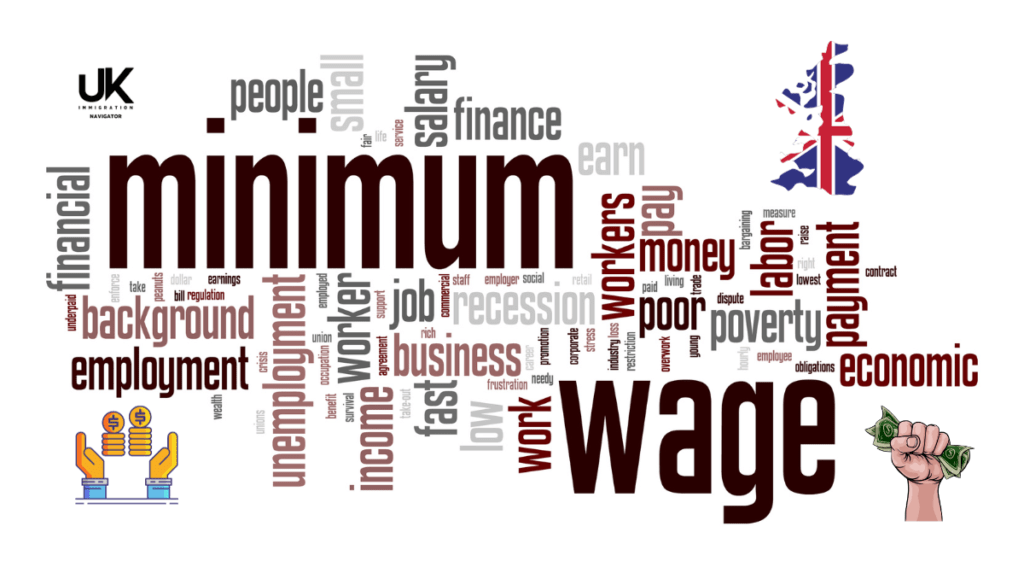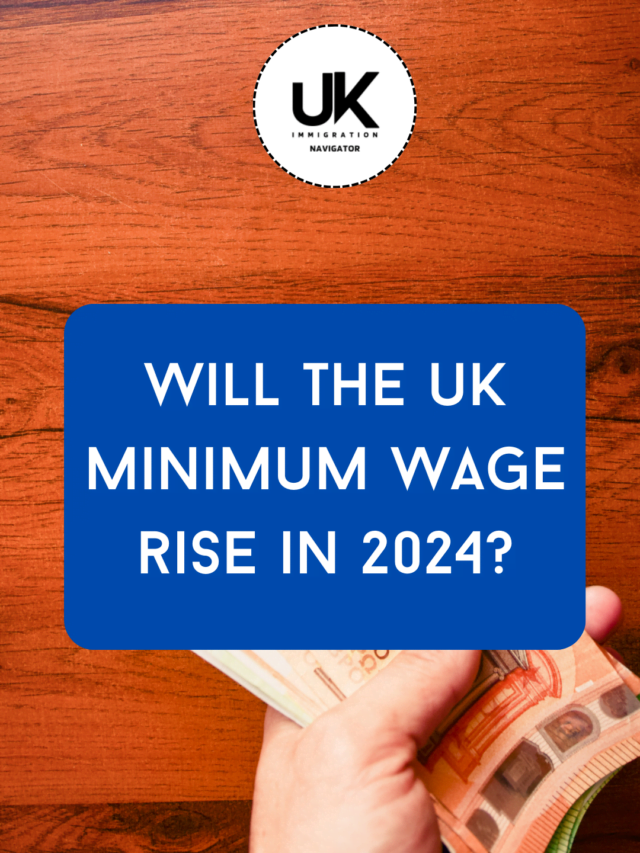In a promising move for workers across the UK, Finance Minister Jeremy Hunt is set to announce a significant increase in the uk minimum wage at the Conservative Party’s annual conference. This increase is expected to affect two million people, providing a substantial boost to their income. Let’s delve into the details of this announcement and what it means for the country’s workforce.
Table of Contents
See also :
latest changes in the UK Immigration in 2023
UK Govt set to rise UK Minimum Wage
Starting from April 2024, the UK’s minimum wage will be raised to £11 (€12.67) per hour, up from the current £10.42 (€12) per hour. This bold step aims to address the issue of low pay and improve the lives of working people, as emphasized by the Conservative Party.
The Conservative Commitment
The Conservative Party has set a target to elevate the National Living Wage to two-thirds of the median income by October of the following year. This ambitious goal is part of their dedication to uplift the lowest-paid workers in the country. The government’s forecast, released in November, revealed a stark reality – the UK was facing its largest drop in living standards, largely due to factors like the Ukraine war, Brexit, and the COVID-19 pandemic.
What is the UK Minimum Wage Per Hour?

Certainly, here is the table with the minimum wage per hour in British Pounds (GBP):
| Age Group (yrs) | UK Minimum Wage Per Hour (GBP) | Indian Minimum Wage Per Hour (GBP) |
|---|---|---|
| 23 and above | £10.86 | £1.11 |
| 21-22 | £10.61 | £1.04 |
| 18-20 | £7.80 | £0.81 |
| 16-17 | £5.50 | £0.57 |
| Apprentice | £5.50 | £0.47 |
The UK Minimum Wage Per Hour varies for different age groups
Here is the table with the minimum wage per hour for different full-time job titles in British Pounds (GBP) and rewritten:
| Full-time Job Title | UK Minimum Wage Per Hour (GBP) |
|---|---|
| Legal | £31 |
| Healthcare | £20.9 |
| IT | £20.09 |
| Finance | £26.1 |
| Education | £12.5 |
| Engineering | £20.9 |
| Sales & Marketing | £11.5 |
| Admin & Office | £10.4 |
| Manufacturing | £12.5 |
| Hospitality | £10.84 |
A Beacon of Hope
The increase in the minimum wage is expected to benefit two million of the lowest-paid workers in the UK, marking a significant step toward improving their financial well-being. Finance Minister Jeremy Hunt is also expected to announce a re-evaluation of the benefit sanctions regime, with the aim of encouraging the unemployed to re-enter the workforce.
The Path to Progress
The government’s initial goal was to ensure that the National Living Wage reaches two-thirds of the median hourly pay by October of the following year. This living wage, which is higher than the minimum wage, is applicable to workers aged 23 and above. According to estimates provided by the Low Pay Commission, the required rate to achieve this target should fall within the range of £10.90 to £11.43, with a central estimate of £11.16.
Jeremy Hunt underscores his commitment by saying, “Today, I aim to accomplish yet another significant Conservative reform – the National Living Wage. Since its introduction, it has lifted nearly two million people out of absolute poverty. This exemplifies the Conservative approach to enhancing the lives of working individuals – by increasing wages and reducing taxes. Today, we take another significant step with another remarkable Conservative innovation: the National Living Wage.”
A Clear Message

Prime Minister Rishi Sunak echoes this sentiment, assuring hardworking taxpayers that the Conservative government is on their side. As the UK continues to navigate its way out of the challenges posed by the pandemic, the government aims to encourage more individuals to return to the workforce, thereby boosting productivity.
Encouraging Employment
Efforts to incentivize the population to return to work have been a key concern for the government. Chancellor Hunt and Work and Pensions Secretary Mel Stride are expected to outline proposals in the upcoming Autumn Statement, making it more challenging for individuals to claim benefits if they are unwilling to take active steps toward re-joining the workforce.
A Social Contract
Jeremy Hunt highlights the significance of upholding a just equilibrium between individuals in employment and those who require assistance. He expresses, “I take great pride in residing in a nation where, as Churchill once remarked, there exists a ladder that all can ascend, coupled with a safety net that ensures nobody descends below. Nevertheless, funding this safety net forms a social pact that hinges on treating those in employment equitably and displaying compassion towards those who are not.
Your Tax Benefits
In closing, it’s worth noting that since last year, individuals can earn £1,000 a month without paying a penny of tax or national insurance. This tax benefit is aimed at further supporting the working population.
In conclusion, the UK’s decision to raise the minimum wage to £11 per hour represents a significant step towards enhancing the lives of workers. It’s a commitment to reducing low pay and ensuring that work remains a viable and rewarding option for everyone. The government’s dedication to balancing fairness and compassion in its policies reflects a broader effort to strengthen the nation’s workforce.
FAQs
- When will the increase in the minimum wage take effect?
- The increase will come into effect from April 2024.
- How many people are expected to benefit from this wage hike?
- Approximately two million people will see an increase in their earnings.
- What is the government’s target for the National Living Wage?
- The government aims to raise the National Living Wage to two-thirds of the median income by October next year.
- How does the National Living Wage differ from the minimum wage?
- The National Living Wage is higher than the minimum wage and applies to workers over the age of 23.
- What measures are being considered to encourage employment?
- Chancellor Jeremy Hunt and Work and Pensions Secretary Mel Stride are expected to propose measures to make it more challenging for individuals to claim benefits if they are unwilling to seek employment.





Pingback: National Minimum Wage UK In 2024: A Comprehensive Guide » UK Immigration Navigator